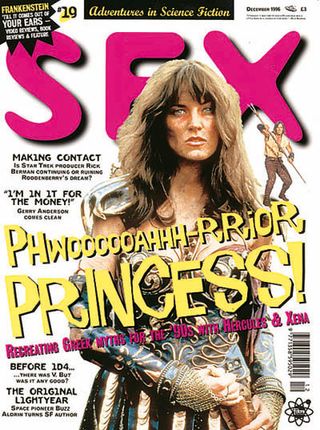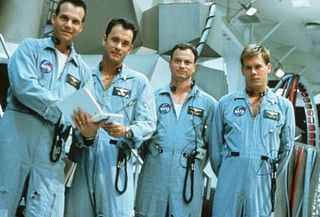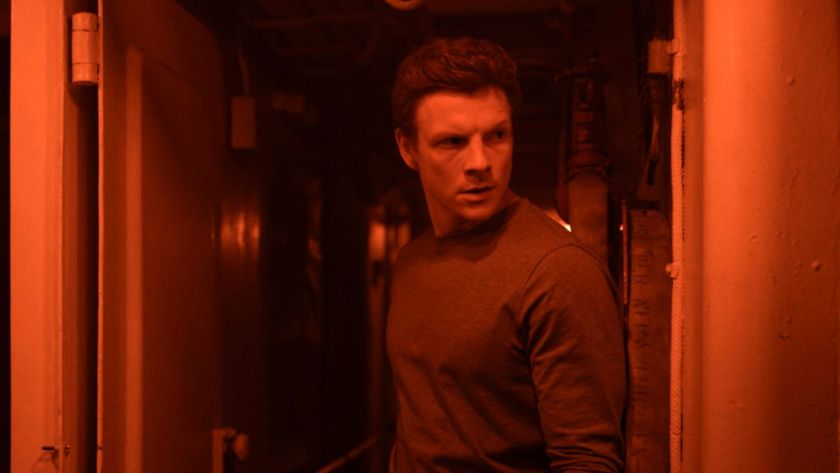SFX Issue 19
None

December 1996
Interview:
Buzz Aldrin

What did Buzz Aldrin think of Ron Howard’s Oscar-winning movie rendition of the harrowing events that befell Apollo 13?
“It was very well done – and timely in the way it helped rejuvenate interest in the space programme. I knew [director] Ron Howard had a long-standing interest in space because I remember sitting down with him and others who were interested in trips to Mars years ago. I’m not sure his studios are big enough really, but he could be a part of some of the development of the movie of Encounter With Tiber.”
But, of course, Apollo 13’s move to film means that, for perhaps the first time ever, the first Moon landing won’t be the best-remembered spaceflight of them all. Is it galling so see the mission which almost ended in disaster catching everybody’s attention? “No, that’s fine. It’s understandable that drama and entertainment need conflict and suspense. The decision to advance Apollo 8 so it went round the Moon with the crew who were to have flown Apollo 9 [a decision which ensured that Aldrin’s crew flew the first Moon landing, and their back-ups got the ill-fated Apollo 13] was a risky decision, which reflected on Apollo 13. Still, we were able to deal with it in a methodical way. I think it’s a great tribute to the resilience of human beings that they were able to adapt the hardware and bring them back.
“The suspense of Apollo 11 was satisfied in a progressive and rather uninteresting way. It didn’t have any cliffhanging moments. It was all prepared for, and then we carried out what we needed to do smoothly. So really the drama and the sensationalism was back here on Earth, where it had an impact on millions of lives. Maybe there are ways of weaving that into a dramatic story, but it doesn’t involve what happened on the Moon.”
One of the oddities of the first Moon landing, of course, is that it was the moment when the whole world turned its attention to one subject – yet the two men actually in the spacecraft were cut off from that communal experience. “That’s a disturbing observation really,” admits Aldrin. “Instead of being free to gaze around and see what’s going on, we were very focused... There was this lack of spontaneity and we lost the chance to be free-flowing in thought and observation.”
Sign up to the SFX Newsletter
Get sneak previews, exclusive competitions and details of special events each month!

Dave is a TV and film journalist who specializes in the science fiction and fantasy genres. He's written books about film posters and post-apocalypses, alongside writing for SFX Magazine for many years.











